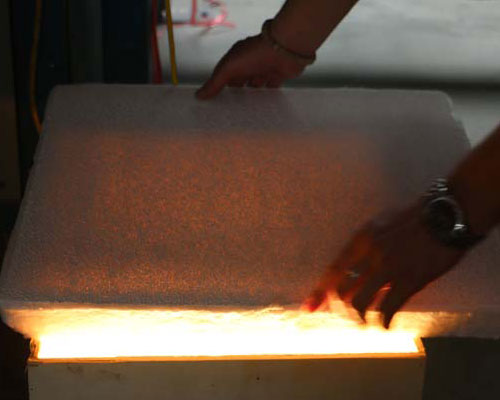Non-stick aluminum ceramic filter for molten metal filtration is the central component of CFF filtering system, suitable for industrial solid-liquid separation.
The main characteristics of the ceramic filter are as follows:
1. The filtration precision covers fine filtration, microfiltration, ultrafiltration;
2. High mechanical strength, stable chemical properties, good wear resistance, low strength, clogging resistance, and easy recoil;
3, high efficiency, high efficiency, uniform, and stable filter opening.
The Non-stick Aluminum Ceramic Filter has continuously increased in the metal casting process, as the added value is greater than the cost of applying the filter and the cost of purchasing the filter. While 20 years ago filters were only used in emergency cases, today filters can be considered an integral part of the molding.
This is due to the benefits of metal filtration which can be divided into three categories such as the benefits for the foundry, the benefits for the foundry customer and the benefits for the final cast product.
Metals and metal products have a special connotation with human civilization. It is considered to be one of the primitive materials that humans have mastered using. However, not all metals are very stable in their raw form. This form of metals may not have the optimum metallic properties and therefore requires purification. The molten metal purification process requires a ceramic foam filter, which ensures that all impurities have been removed from the metal solution. Once this process is complete, the metal is ready to be used in different types of applications through different processes.
The natural melting points of various metallic elements are very high. The melting point range of metals can vary, but is generally between a few hundred and over a thousand degrees Celsius. So it is very necessary that aluminum foundry filters have certain properties.
A large amount of metal solution is poured onto these filters and therefore must have high compressive strength to undergo the operation without damage.
Porosity is the percentage of pore space in filters. This property is very important in operations because a filter with much larger or smaller porosity can hinder the process.

